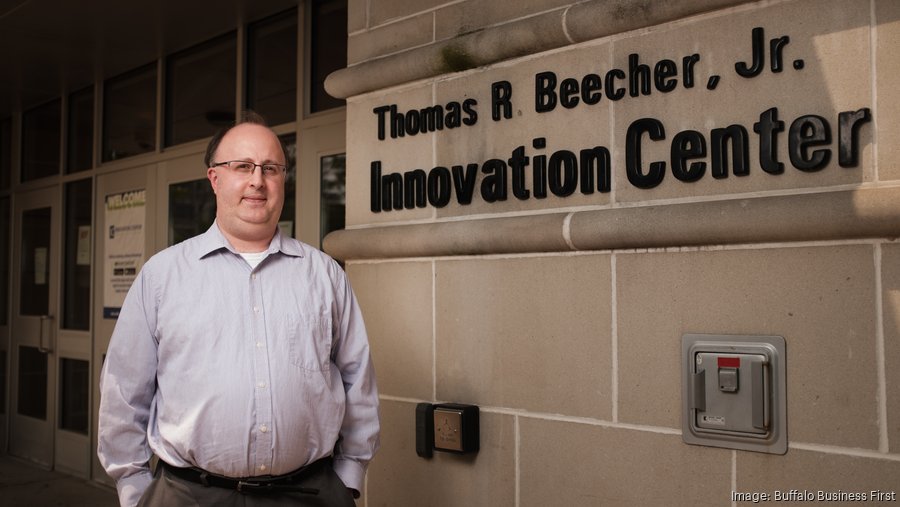Attorney Keith Wesolowski asks an interesting question on his website: How will you build up Buffalo?
“I guess it’s one of those things that touches on my hometown pride,” he said. “I grew up in Western New York and this has always been home, even though school and my career took me different places. I’ve had that value instilled in me to do what I can to make our town a better place.
“That’s always been something that’s motivated me.”
Wesolowski works with entrepreneurs and new businesses on what he calls “sincere, strategic solutions.” And perhaps never has there been a need for the decisions to be so nimble as local businesses look to bounce back from financial woes brought on by the coronavirus pandemic.
He and attorneys around the region have counseled businesses as they navigate legal conundrums. Chief among concerns is how to resume business with sufficient safety measures carried out.
Companies are also looking for insight on the fine print contained in the Paycheck Protection Program and other U.S. Small Business Association programs as well as getting into the nitty gritty in which phase can a company reopen.
“It’s a very fluid situation on a number of different fronts,” Wesolowski said. “We’re learning more day by day about how this virus spreads and how people are getting sick. We’re changing policy on the fly because we want and we need to keep people safe. But, at the same time, we want to keep people in their livelihoods and try to get done what we can from a business perspective.”
The Wesolowski Law Group is headquartered in space at the Innovation Center on the Buffalo Niagara Medical Campus.
“Even though we’re plugged into the innovating community, our business goes much more beyond that,” Wesolowski said.
Questions from businesses at first, he said, delved into whether they were essential or nonessential. Since then, they are focused on reopening procedures and moving forward.
“The guidance has continuously been evolving,” he said. “It’s been one of those things we have to keep tabs on. Sometimes the definitions at first weren’t exactly the clearest.”
Wesolowski said companies need to examine business models and make decisions on how they will interact with clients differently while keeping employees safe.
“There are even the occasional questions of, heaven forbid, what happens to my business if workers get sick and if there are personal-liability implications,” he said.
How a company rebounds from the pandemic, Wesolowski said, may be pivotal to future success.
“Business owners are going to have to keep watching as new guidance comes out and adapt to it,” he said. “Those who adapt are going to be the ones that come out of this thriving.”
A common sentiment has been nervousness, attorney Jonathan Schechter of Gross Shuman PC said.
“It’s been interesting, and it’s a strange, new world,” he said. “Buffalo has a lot of Main Street type of businesses, and I think these have been hardest hit across the whole region and country.”
He said restaurants that adapted takeout operations maintained constant business, but others that couldn’t do so have suffered. One benefit to those with setbacks has been the extension of the PPP program.
“They now have until the end of the year to spend that money,” Schechter said. “That was a big relief for a number of my clients. That helped them significantly because they know those loans can be forgiven.”
Overall, like many, he anticipates that the pandemic will prompt changes across the board in how business is carried out.
“I think that things will not be full capacity for a long time,” Schechter said. “I think unfortunately we’ve now realized we can do more with less. A different dynamic shift has occurred.”
Partner and founder Corey Hogan of HoganWillig PLLC said the firm analyzes how a business performed prior to any downturns, starting in mid-March, as opposed to what confronts it now.
“If you were even struggling beforehand, then that’s something we can take a look at in terms of the fundamental solidness of your business,” he said. “Then once we have a feel, we can decide who from our various team members gets brought in to help.”
Diane Tiveron, managing partner, is part of initial conversations with clients and pinpoints which direction their legal needs may take.
“I try to bring all the resources that the firm has,” she said.
The firm has attorneys who handle bankruptcies which Hogan said in some situations can provide a crutch to reorganize.
Non-attorneys on the team include Scott Meacham, director of business operations and a former small-business owner.
“It helps when I can relate to exactly what some of the clients are going through from my own personal experience,” Meacham said. “It helps to form a connection with them that can lead to real, practical solutions than an attorney might not see from their legal point of view.”
Many issues in front of businesses have not yet dissipated, Hogan said. If a business was unable to procure PPP funding or other loans, their operations would have likely fizzled out.
“Depending what you’re selling, there still may not be a lot of business out there,” Hogan said. “Most day-to-day functioning businesses, if they didn’t have some cash reserves, they are having a very hard time getting through each week.”
